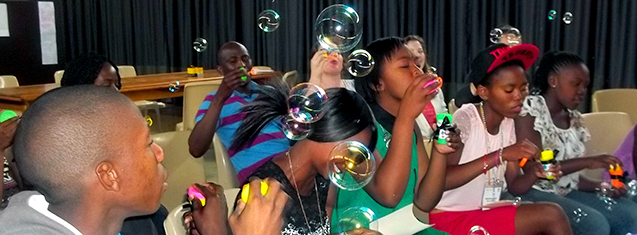Latest News Archive
Please select Category, Year, and then Month to display items
12 October 2020
|
Story Dr Cindé Greyling
|
Photo Supplied
 Exercise and nutrition can work wonders for your mental health – you don’t even have to ‘feel like’ or ‘enjoy’ moving around and eating well for it to work – it does its thing anyway.
Exercise and nutrition can work wonders for your mental health – you don’t even have to ‘feel like’ or ‘enjoy’ moving around and eating well for it to work – it does its thing anyway.
Nowadays, people talk about mental health like it is the common cold – which is good! But do you know what it really means? Being mentally healthy does not only refer to the absence of a mental illness but includes your emotional and social well-being. One would almost want to add physical well-being too, since a healthy body does indeed support a healthy mind. However, since so many people consider themselves ‘mental health experts’, some myths have been sold as truths.
Myth #1 – You are doomed.
Nope. Never. You are never doomed. There is always help. Mental-health therapies range from self-help, talk therapy, medication, to hospitalisation in some cases. Somewhere on this spectrum of treatments, there will be something that works for you. But you must be willing to get the help and do the work. For starters, exercise and nutrition can work wonders – you do not even have to ‘feel like’ or ‘enjoy’ moving around and eating well for it to work – it does its thing anyway.
Myth #2 – It won’t affect you.
It may. Research suggests that one in five people may suffer from a mental illness at some point in their lives. Being well now does not mean that it will stay that way. Biological and environmental factors both impact your mental health. Hopefully not, but at some point, you may experience an event that affects your mental health.
To remain integrated in a community is always beneficial
for anyone suffering from a mental or physical condition.
Myth #3 – Someone struggling with mental health must be left alone.
Hardly! To remain integrated in a community is always beneficial for anyone suffering from a mental or physical condition. You do not need to fix them, but to remain a friend. Continue to invite them, even if they decline. Do not judge, and do not try to understand. Just stay around.
Go and be kind to yourself, and to those around you.
Digital Storytelling empowers and liberates students
2014-10-17

In January 2014, Jode Brexa, an American Fulbright scholar, came to our university and moved into the guest room at Welwitschia residence.
It so happened that Brexa and Elize Rall, residence head of Welwitschia – better known as Wel-Wel – started talking about digital storytelling. Brexa’s Digital Storytelling project captured Rall’s imagination. Shortly thereafter, Brexa convinced the RC members of Wel-Wel to participate in the project.
Digital storytelling is, on the most basic level, the use of computer-based resources to tell stories. The idea is to combine the art of storytelling with multimedia – including graphics, photos, text, audio, image and/or music.
The Wel-Wel students were taught storytelling skills and each student’s unique story was recorded and edited. It was so successful that they then showed their stories to the Rector and Dean of Students. Brexa will now – with their permission – take their stories to America with her, where she will share it with her community.
During the weekend of 10–12 October 2014, the RC of Wel-Wel introduced 12 learners, who are currently in Grade 10 at the Christiaan Liphoko School, to the project. The learners stayed in the gazellie for the weekend and, in the course of a few days, learned how much power is locked up in their personal stories. They learned that everyone’s story has the power to inspire and empower.
Wel-Wel has been involved in various outreach projects to the community. However, this was the first time that Wel-Wel literally brought the community to their doorstep. This is also not a charitable project. It is uplifted students reaching out to the youth to empower them in order to empower others in turn.
Meanwhile, Brexa also linked the project to the university’s Schools Partnership Project. The programme works through mentorship programmes to uplift previously disadvantaged schools. Hands were also taken with Columba Leadership NGO – financed by Old Mutual.